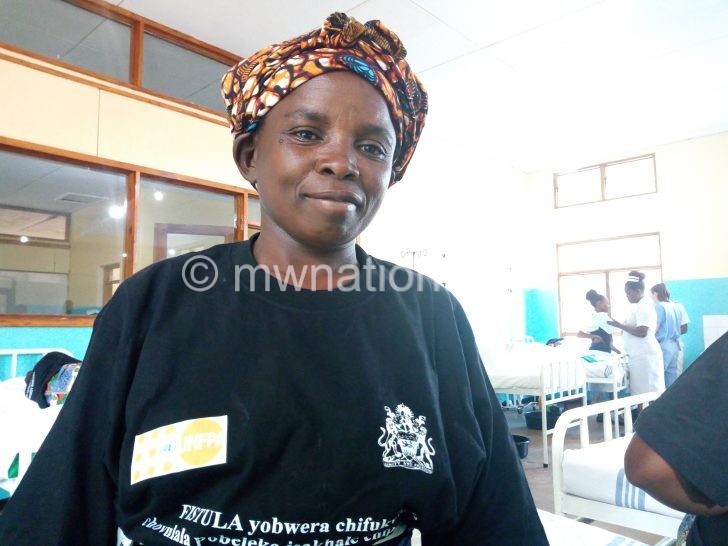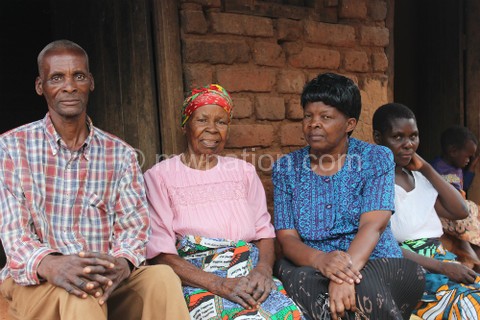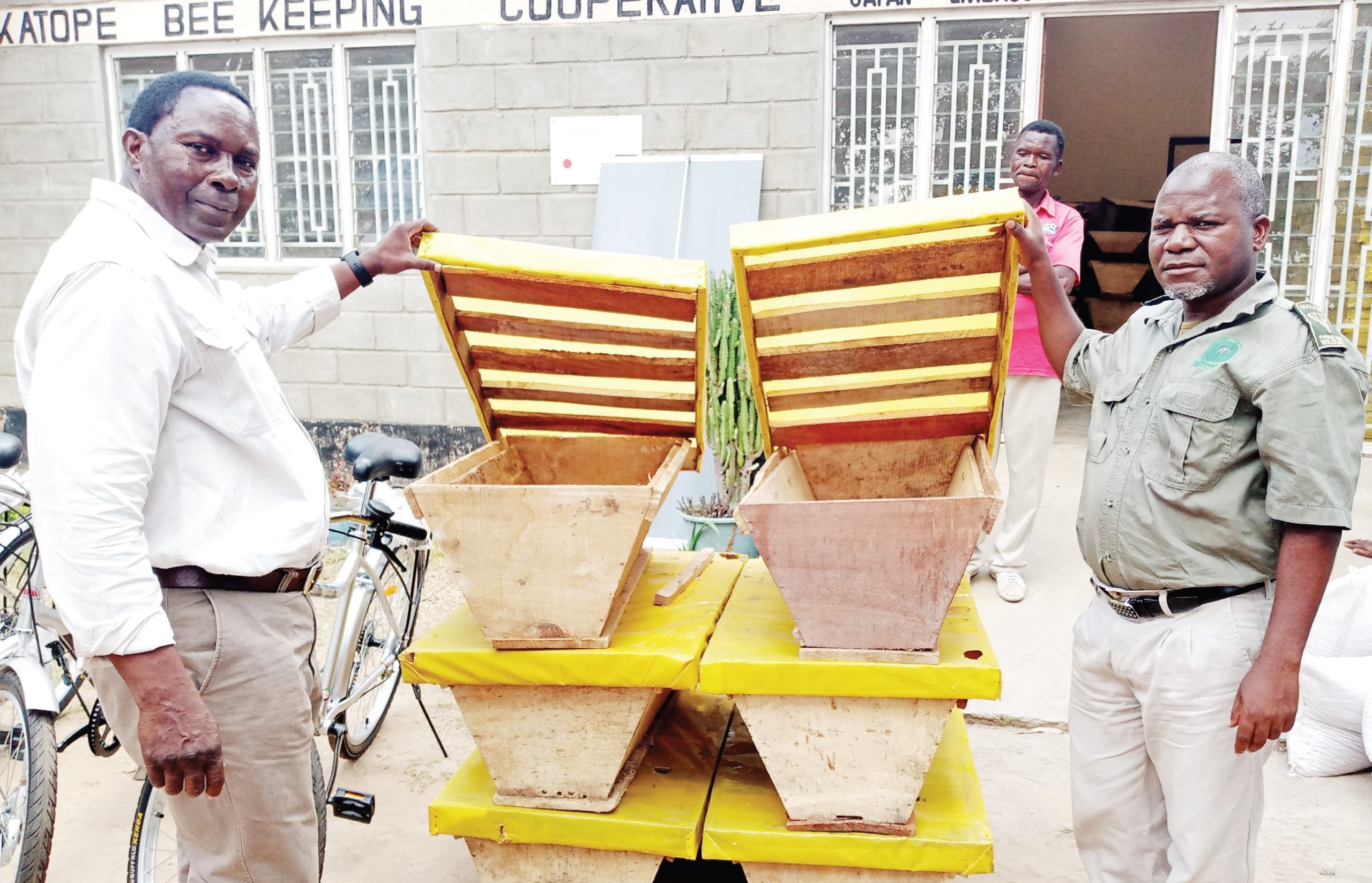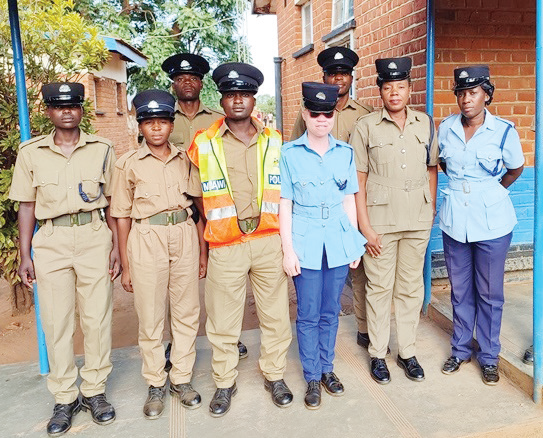Silent sobs of women with fistula
Fistula repair surgeries are liberating women dehumanised by the treatable birth-related condition which leaves them disgraced and discriminated.
It is a sunny Thursday morning at the foot of the picturesque Mulanje Mountain, the second most visited tourist attraction in Malawi.

It is sweltering in an overcrowded maternity section of Mulanje District Hospital at the bottom of the country’s largest mountain, an astonishing rock outcrop in the middle of postcard tea fields of the Southern Region.
Yet the heat—which easily leaves clinical staff, patients and guardians perspiring profusely—is not the reason Line Gwinya, 38, does not appear particularly happy as she sits by an open window in a 26-bed ward that houses up to 40 pregnant women a night, she says.

She is lucky to be perching on a bed in the lengthy hall where sights of women sleeping on the floor are not unusual.
A similar scene so shocked Tanzanian president John Magufuli that he sacked Muhimbili hospital chief when he made a surprise visit to the facility in Dar es Salaam three years ago.
However, this too is not what depresses the woman from Mwetiheni Village in Traditional Authority Nkanda in the tea-growing district. It is common to see patients and pregnant women in State-run hospitals lying on the floor—“and this did not begin yesterday,” she says.
Since 1996, Gwinya has three times spent days in similarly overcrowded maternity wards in anticipation to give birth and she has one child to show for it.
Her “worst tragedy” is that her second visit two decades ago left a hole in her birth canal. She has been leaking urine uncontrollably and her husband fled as he could not stand it.
“Being here brings to mind bitter memories of my futile attempts to have children,” she says with nostalgia in an interview in the packed ward. “My husband wanted us to have three children, but I have only one, born through a surgery in 1996. I carried the pregnancy for 11 months. Two years later, I had a stillbirth after enduring another operation. I got pregnant again in 1999, but it was another operation and stillborn.”
The two stillborns have left Gwinya weighed down by a sense of loss—all after going under the knife.
But memories of the second pregnancy keep haunting her. She lost her dignity to the hole that developed after futile labour pains.
The hole, termed obsteric fistula, instantly turned her into a laughing stock in her rural community and everywhere she went.
“When I was told that a baby I had carried for nine months was born dead, I wept. I endured two operations. After the second one, I started leaking urine without control, an embarrassing condition I have lived with for 20 years,” she recounts.
Gwinya’s decades of shame came to an end last month, thanks to a campaign by United Nations Populations Fund to end fistula one surgery at a time.
She was among 30 women admitted to Mulanje District Hospital’s two-week fistula treatment UNFPA organised with funding from Iceland International Development Agency (Iceida).
These women were visibly happy to see the back of one of the most serious and tragic childbirth injuries.
Fistula leaves women with puncture between the birth canal and bladder or rectum due to prolonged, obstructed labour.
“Getting healed will be like being born again. I have suffered for many years. I couldn’t participate in public life because I was leaking urine. I couldn’t go to funerals. I couldn’t go to church. I couldn’t go to the market. Everywhere I went, people were sneeringly pointing at me, saying: ‘here comes the woman who wets herself like a baby in nappies’.
“Some were even fanning their noses or spitting because I was emitting a foul smell. I sought assistance from numerous health facilities, including Mulanje District Hospital and Queen Elizabeth Central Hospital, but they all gave me tablets and injections that did not change the situation. When I heard on radio that a foreign doctor was coming to repair fistulas, I hurried. I did not want to miss this one-off chance.
Admittedly, Gwinya could not wait to go back home and show everyone that the person they once despised is healed.
“I want them to accept me as a woman like any other,” she said, feeling liberated at last.
Campaign to ending fistula
Her long search for a healing mirrors the plight of many people struggling with the chronic condition which leads to depression, social exclusion and deepening poverty.
UNFPA estimates that nearly two million people globally—one percent of women—are living with devastating effects of fistula. .
Almost 20 000 of them live in Malawi, the UN agency reports.
The majority of them have been leaking urine and faeces for decades as most hospitals in the country lack necessary facilities and skilled workers to prevent and treat fistula.
“We need to do more to end fistula because it erodes the dignity of women and girls. They feel humiliated and excluded. Some husbands abandon them,” says UNFPA Malawi representative Ratidzai Ndhlovu.
She puts a human face to the silent problems which mainly affect poor women, especially in rural setting where health facilities are few and far apart despite the huge unmet need for quality healthcare services.
“One Malawian woman lived with fistula for 66 years. We thank donors for financial support towards restoring the dignity of a woman like her who suffers a lot and is usually made to feel as if it was of her own making,” explains Ndlovu.
This is the story of Alice Sabuni, a rural woman in Blantyre District who lived with fistula since 1949, when she gave birth to her firstborn at age 17.
The grandmother of 25 regained her smile in 2016, aged 83, when she travelled almost 100 kilometres (km) from her remote village to Mulanje Hospital where she had a successful repair surgery at a similar camp.
Sabuni counts herself lucky that her husband did not walk away. He stuck by her, supporting her to access treatment and overcome its devastating social impacts.
“I think this man loved me a lot because most men would not stay with a woman who had this condition. There were times people thought he had been bewitched,” she recounts.
But Gwinya was not as lucky. Fistula left “a gaping hole in my young family”, she says.
Opening up about her major heartbreaks, she narrates: “It left a hole in my heart. Just a week after I started leaking urine, my husband left and married another woman.”
“I raised the baby single-handedly until 2004 when another man asked for my hand in marriage. I protested vehemently, telling him no sane man would love a leaky woman. But he insisted. I gave him a chance.”
The fistula survivor salutes her new spouse for walking side by side with her as she groped for medical treatment at various health centres.
“He has been very supportive and loving. He works hard to ensure we do not starve as fistula made it almost impossible for me to do a small business to improve our livelihoods,” she said.
In fact, the husband cycled all the way from Mwetiheni Village to deliver her at Mulanje District Hospital.
The treatment camp is part of UNFPA’s global push to end fistula which started in 2003.
The Campaign to End Fistula came to Malawi in 2007. Ever since, UNFPA and its partners have been flying in foreign doctors to work with local clinical staff in conducting repair surgeries, increasing mass awareness and linking fistula clients with health facilities which offer treatment, care and support.
Iceida, which mainly works to improve health, education and sanitation services in Mangochi, has been assisting UNFPA in ending fistula globally for some years.
It pumped $60 000 (about K43.8 million) into repairing a ward and conducting the fistula treatment camp at Mulanje District Hospital.
Icelandic Ambassador Agusta Gisladottir says: “I am very touched by the stories of these women. I am happy for them. I feel lucky not to have this problem. It is a grave issue. It is affecting women and ruining their families.
“Some have it for long term. One has had it for 14 years. For them, it has been a revelation that they can come here and be healed. We must do something about it. When UNFPA asked us to join in, it was a perfect opportunity. Some women come from Mangochi where we mainly work.”
Bringing back smiles
According to Mulanje district health officer Dr Khuliyena Kabwera, the hospital set out to heal 50 clients, but admitted 40 and operated on 30.
Eight came from Mangochi, seven from Neno, six from Phalombe, two from Thyolo and five from the neighbouring Mozambique. Blantyre, Chiradzulu and Chikwawa districts contributed one each.
As the foreign surgeon works hand in hand with local clinicians to put smiles on the face of these women who once wallowed in shame and pain, Kabwera is excited that his staff is gaining vital skills to conduct the procedure.
“There is skills transfer. Now, we have one clinician who conducts fistula repairs depending on the degree. Complicated fistulas require specialised operations, so we refer them to Queen Elizabeth Central Hospital in Blantyre or Kamuzu Central Hospital in Lilongwe. The rest are done here at the district hospital,” he says.
Most importantly, they are bringing back smiles and dignity of women who almost lost hope in the country’s health care system.





